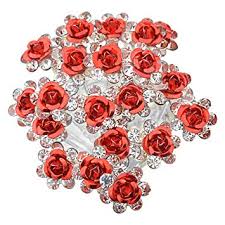Bioinspired Nanoscale Drug Start Formula Developed Through WSU, PNNL Researchers

Schematic representation of the circulate of the flower‑like particle because it makes its approach through a mobile entice to carry therapeutic genes.
by Tina Hilding, Voiland faculty of Engineering and architecture
PULLMAN, Wash. – Washington State tuition researchers have developed a novel strategy to bring medicine and treatments into cells on the nanoscale devoid of inflicting toxic outcomes which have stymied other such efforts.
The work could someday cause more effective cures and diagnostics for cancer and other illnesses.
Led by Yuehe Lin, professor in WSU’s school of Mechanical and materials Engineering, and Chunlong Chen, senior scientist on the branch of power’s Pacific Northwest national Laboratory (PNNL), the research group developed biologically inspired substances at the nanoscale that have been capable of conveniently carry mannequin therapeutic genes into tumor cells. They published their effects in the journal, Small.
Researchers have been working to boost nanomaterials that can conveniently carry therapeutic genes at once into the cells for the treatment of ailments akin to cancer. the important thing considerations for gene delivery the use of nanomaterials are their low birth efficiency of drugs and skills toxicity.
Closeup of Lin.Lin
“To improve nanotechnology for medical purposes, the first aspect to believe is toxicity — this is the first concern for medical doctors,” noted Lin.

The flower‑like particle the WSU and PNNL crew developed is set a hundred and fifty nanometers in dimension, or about one thousand instances smaller than the width of a chunk of paper. it is manufactured from sheets of peptoids, which might be corresponding to natural peptides that make up proteins. The peptoids make for a fine drug delivery particle as a result of they’re pretty effortless to synthesize and, as a result of they’re comparable to natural biological substances, work smartly in biological programs.
The researchers delivered fluorescent probes in their peptoid nanoflowers, so they might hint them as they made their means via cells, and that they delivered the point fluorine, which helped the nanoflowers more without difficulty escape from problematic cellular traps that regularly bog down drug birth. grand opening stand grand opening stand
The flower‑like particles loaded with therapeutic genes were in a position to make their method smoothly out of the estimated cellular entice, enter the coronary heart of the phone, and unlock their drug there.
“The nanoflowers efficaciously and all of a sudden escaped (the cellphone lure) and exhibited minimal cytotoxicity,” noted Lin.
After their initial trying out with mannequin drug molecules, the researchers hope to conduct further studies using precise drugs.
“This paves a brand new means for us to increase nanocargoes that may successfully carry drug molecules into the telephone and offers new opportunities for centered gene healing procedures,” he observed.
The WSU and PNNL group have filed a patent utility for the brand new expertise, and they are seeking industrial companions for further building.
The work was funded with the aid of Washington State tuition beginning‑up funds and the branch of power.
Yuehe Lin, professor, college of Mechanical and substances Engineering, 509‑335‑8523, yuehe.lin@wsu.edu
Tina Hilding, communications director, Voiland faculty of Engineering and structure, 509‑335‑5095, thilding@wsu.edu







